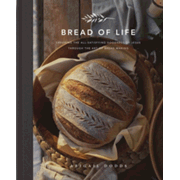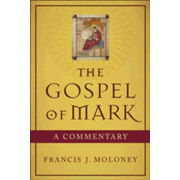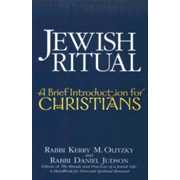 FOR THIS Fifteenth Sunday after Pentecost we hear
again from Saint Mark concerning a behavioral tradition challenged by Jesus. The
topic of conversation concerned adherence to a human religious habit founded by a society for pious justifications, over against the heartfelt doings of the will of God.
Therefore we respectfully read...
FOR THIS Fifteenth Sunday after Pentecost we hear
again from Saint Mark concerning a behavioral tradition challenged by Jesus. The
topic of conversation concerned adherence to a human religious habit founded by a society for pious justifications, over against the heartfelt doings of the will of God.
Therefore we respectfully read...
And
he (Jesus) called the people to him again, and said to them, “Hear me, all of
you, and understand: there is nothing outside a man which by
going into him can defile him; but the things which come out of a man are what
defile him.”
And when he had entered the house, and left
the people, his disciples asked him about the parable. And he said to them,
“Then are you also without understanding? Do you not see that whatever goes
into a man from outside cannot defile him, since it enters, not his heart but
his stomach, and so passes on?” (Thus he declared all foods clean.)
And he said, “What comes out of a man is what
defiles a man. For from within, out of the heart of man, come evil thoughts,
fornication, theft, murder, adultery, coveting, wickedness, deceit,
licentiousness, envy, slander, pride, foolishness. All these evil things come
from within, and they defile a man.” (Mark 7:14-23)
 |
Bread of Life: Savoring the All-Satisfying Goodness of Jesus through the Art of Bread Making By Abigail Dodds |
What
May We Eat?
As Christians who have been taught to look at
scripture for the dialectic tension maintained between the Law and the Gospel,
we read that our lectionary menu seems to have items listed numerously
beneath the Law column. These are many items that condemn us, and yet only one thing
artfully hidden exists within the right reading of the Gospel. This causes great
remorse, for we find ourselves dining on sour grapes.
Note here that
the disciples, and in particular those later found within Mark’s community... had
incorporated many Gentiles around them. In doing so, they found themselves adapting their diet to
include foods that were not ritually kosher in the Jewish cookery. Not only did
many disciples eat with ritually unclean hands, they would eat such horrid non-kosher menu as delicious pork chops, lobster and squid. Such items were forbidden by the Jews, yet today they may cost a
lot of money today in a favorite modern restaurant.
Thankfully,
according to Mark, Jesus cleared up dietary confusion. He said that to be
defiled so that one was unacceptable before God, was not a matter of what a
person ate… but rather that our spiritual condition depended on what we
did or did not do in daily life. That news came across favorably to those in
the early Church who were not Jews keeping kosher ritual. However, this news was short-sighted in relieving their concern, since they immediately were taught that we cannot eat or work our way to heaven.
This is good news for such as a contestant of a TV series “Alone”, who recently had to whip up a meal of slugs and seaweed in order to physically survive. While it is astounding what the impoverished must find to eat from the dumpsters of our sinful world, we must ask, "Does that good and pure thing which we may find in the dumpster that we know of as this physical world, carry us safely across the threshold into the spiritual realm?"
This is good news for such as a contestant of a TV series “Alone”, who recently had to whip up a meal of slugs and seaweed in order to physically survive. While it is astounding what the impoverished must find to eat from the dumpsters of our sinful world, we must ask, "Does that good and pure thing which we may find in the dumpster that we know of as this physical world, carry us safely across the threshold into the spiritual realm?"
What
Should We Do?
The trouble for us becomes evident as our
Lord addressed that which comes out of a man. Jesus basically said that no matter we eat, what spiritually
comes out is like smelly defecation which makes us want to place our outhouse far from
the homestead. Now for me, this egregious thought rolling around in my head struck
hard on my nose, much like being downwind of the privy. Indeed, the mental picture was
so pungent to them back then, that as the later Gospel of Matthew was written some twenty years
later the scribe tried to lessen the impact. Matthew related that our Lord
said…
And he called the people to him and
said to them, “Hear and understand: not what goes into the mouth defiles a man,
but what comes out of the mouth, this defiles a man.” (Matthew 15:10-11)
Thus it was that even the early Church may have winced beneath the
smell of human sin, so that they emphasized a dirty mouth. So too we blanch at
Mark's menu of condemnations. You see, our overall behavior stinks like sour incense
before God... so that no matter which end of the menu you bite down on... it's still worm food we are destined to be.
Just examine the
list! The menu of moral degradation we ingest condemns each and every one of us… whether
we are Jew, Gentile, Roman, Greek, Russian, Oriental, African or American. Our Lord
Jesus stated that these things come from the sinful, corrupted hearts of all humanity. By the time the list is completely read, we together possess a distinct urge to
push back… away from the table. However, we find it is already too late! We are already condemned. What
then can we do? Where shall we go? What may we offer? To whom shall we cry to
pay the dinner check and save us?
Sweet
Salvation
Take note here that the lesson then reveals to us the
hidden one, a servant (in the Greek word “doulos”
), Jesus stands very near to us. The steady and pure holy Servant, who is the Son of
God… is the very One who has stood by us through his Spirit to teach us today.
It is the Holy Spirit of the Father and the Son that reveals the menu for our perusal. The Spirit
tells us just like a patient waiter in your favorite Chinese restaurant, "Jesus
waits for you to choose between those sweet and sour sinful items on the left,
or the singular saving entity on the Right." If we choose as driven by the Holy
Spirit to the right saving grace… we find ourselves sitting at a wondrous, eternal table, where
blessed Saint Paul reminds…
For
I received from the Lord what I also delivered to you, that the Lord Jesus on
the night when he was betrayed took bread, and when he had
given thanks, he broke it, and said, “This is my body which is for you. Do this
in remembrance of me.”
In the same way also the cup, after supper,
saying, “This cup is the new covenant in my blood. Do this, as often as you
drink it, in remembrance of me.” For as often as you eat this bread and drink
the cup, you proclaim the Lord’s death until he comes.
Whoever,
therefore, eats the bread or drinks the cup of the Lord in an unworthy manner
will be guilty of profaning the body and blood of the Lord. Let
a man examine himself, and so eat of the bread and drink of the cup.
(1
Corinthians 11:23-28)
Therefore, people of God… examine your hearts.
For indeed hidden in, with and under the bread and wine that we consume in the
holy meal of the Eucharist... is certainly the One who presents this gospel! That is the
“Good News”, that he is the holy Servant who wrapped a towel around his waist and
washed our feet, preparing us for this wondrous dinner. Jesus Christ, our Lord,
Teacher and Savior, has given us the food which is his own body and blood. He thus provided
forgiveness for us and informs of our renewed mission.
Consequently, his menu empowers us
for proclamations of grace to those around us, so that what comes out of our mouths is as sweet smelling
incense burned before the altar of God. This is the gospel rightly proclaimed that saves, that which needs to be
bountifully shared... and as such it should come as plentiful from the heart of the Church.



